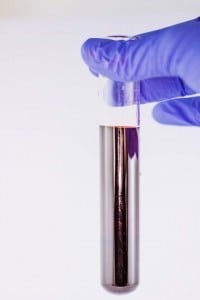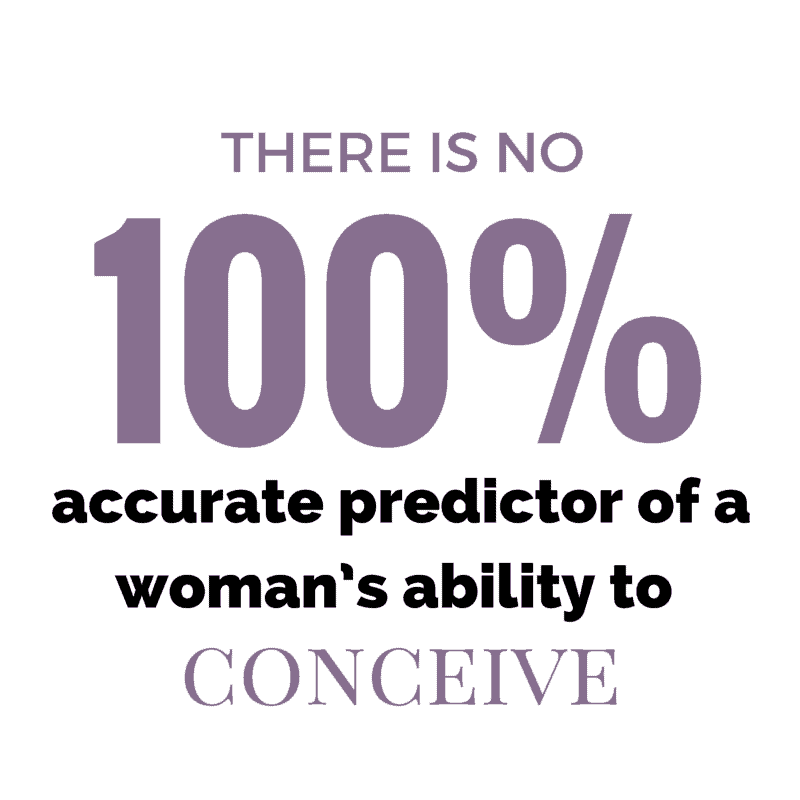It is widely believed that anti-mullerian hormone (AMH) levels are a good determinant of the success or failure of an in-vitro fertilization (IVF) procedure – but is this really the case?
Mark P. Trolice, M.D., Director of The IVF CenterSM, says fertility in women tends to decline with advanced age and AMH levels go down significantly after the age of 35. This, in turn, results in a decline in the ovarian volume and the antral follicle count is significantly reduced.
“The assumption AMH levels can predict whether a woman is capable of conceiving or not is not entirely accurate, there is no doubt that AMH values are often used to determine whether a woman undergoing IVF treatment is likely to have a higher success rate,” says Dr. Trolice. “Some women seem to think, and some clinics also support this view, that the AMH test can be used to screen a woman’s fertility potential. That is completely untrue. What the test actually tells us is the number of eggs that are left.”
AMH is a substance produced by the granulosa cells in the ovarian follicles. The hormone is produced by follicles 5 to 7 mm. The hormone level can be used to predict ovarian response to stimulation and is useful for tailoring IVF cycles based on patient results.
Is the AMH Test a Screen for Fertility Potential?
 Many believe that levels of AMH hormone in the blood can reflect the size of a woman’s egg supply. However, AMH levels do not provide any information about the quality of the eggs nor can give a clear answer as to whether a woman will be able to have a baby or not. It is not necessary that a woman with low AMH levels will definitely fail with IVF treatment. Also, results of this test should also not be used to exclude couples from attempting IVF treatment.
Many believe that levels of AMH hormone in the blood can reflect the size of a woman’s egg supply. However, AMH levels do not provide any information about the quality of the eggs nor can give a clear answer as to whether a woman will be able to have a baby or not. It is not necessary that a woman with low AMH levels will definitely fail with IVF treatment. Also, results of this test should also not be used to exclude couples from attempting IVF treatment.
AMH test is also often combined with antral follicle count (AFC) as this tells healthcare providers the number of small follicles within both ovaries. Both these tests together can help determine the best strategic route for women planning to undergo IVF treatment.
Women who are over the age of 35 and wish to have a baby or those who have not been able to conceive so far and are considering undergoing in-vitro fertilization are good candidates for the AMH test as it is a reliable predictor of ovarian reserve. The test is part of standard fertility evaluation in many clinics and is often used in conjunction with other tests such as FSH, estradiol and antral follicle count.
What do AMH Levels Mean for Potential Parents?
While there is no 100 percent accurate predictor of a woman’s ability to conceive, AMH levels can be interpreted as follows:
- High (common with PCOS) / Over 3.0 ng/ml
- Normal classic textbook. / Over 1.0 ng/ml
- Low Normal-ish Range / 0.7 – 0.9 ng/ml
- Low / 0.3 – 0.6 ng/ml
- Very Low / Less than 0.3 ng/ml

Things to Remember
- AMH levels are used to assess the ovarian reserve.
- AMH levels are useful when determining stimulation protocols for IVF cycles in women undergoing IVF treatment.
- AMH levels CANNOT predict a woman’s ability to conceive.
 The AMH test is a simple blood test that can be used to determine the likelihood that an IVF treatment will be successful in couples who are trying to conceive.
The AMH test is a simple blood test that can be used to determine the likelihood that an IVF treatment will be successful in couples who are trying to conceive.
“The anti-mullerian hormone test has been around for the last probably five or more years but is used much more clinically now than ever before. The problem is why we use this test,” says Dr. Trolice. “We use the test to determine how to stimulate a woman who is going to be injected with fertility medication and how many eggs we’ll be getting if we do the test.”
In other words, the test does not determine the quality of the eggs, just their viability. The test will not tell an average woman her chances of having a baby but for women over the age of 35 when hormone levels are extremely low, it is a good indicator of the chances of success or failure of IVF treatment. It can also be used to screen egg donors as those with good AMH levels can be good candidates.






